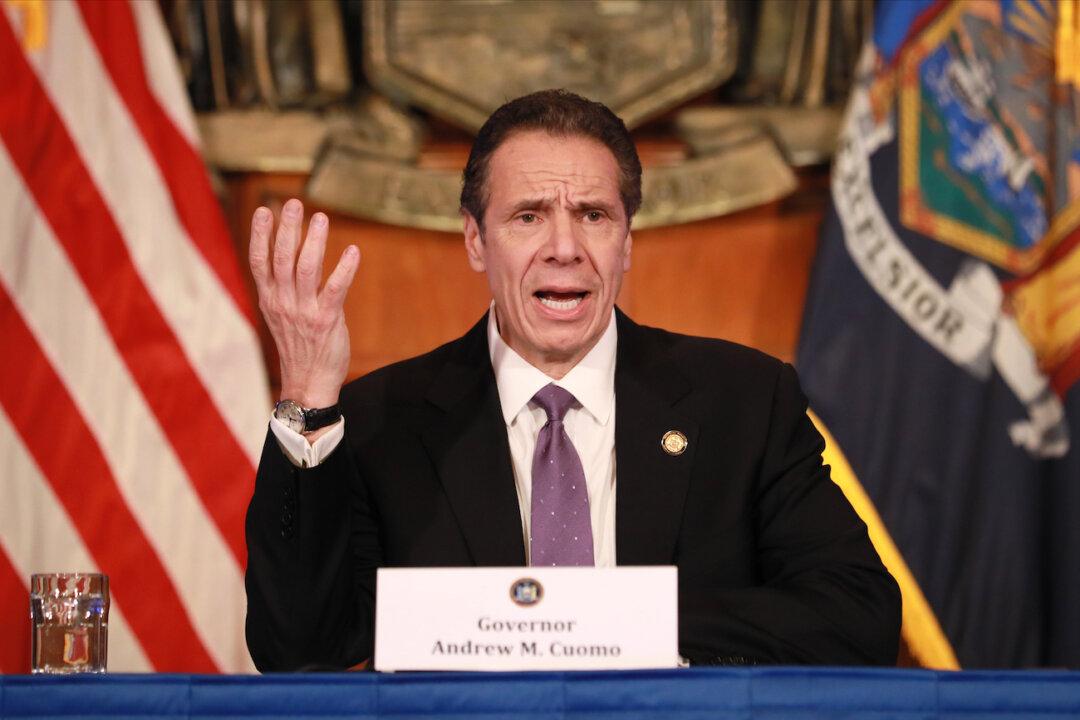New York Gov. Andrew Cuomo said April 22 that protestors demanding the state reopen so they can return to work amid the CCP (Chinese Communist Party) virus pandemic should “get a job as an essential worker.”
Cuomo made the comments during a press conference on Wednesday after WRGB reporter Anne McCloy told him that she had spoken with some demonstrators who had gathered in Albany to stage an “Operation Gridlock” protest calling for an end to the “PAUSE“ plan that closed non-essential businesses statewide.




